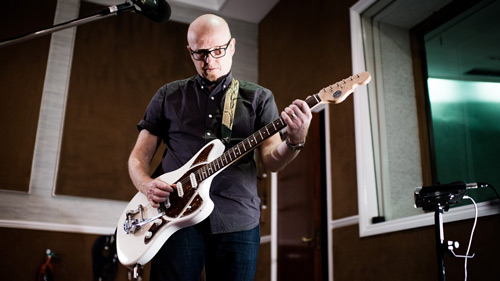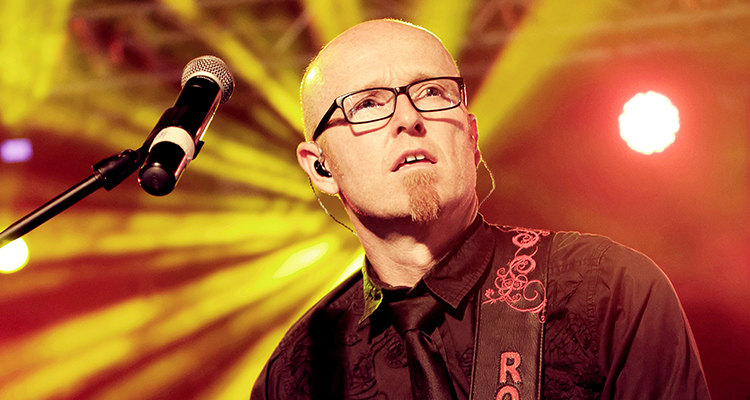CCM: The notion of “the last shall be first” from the Beatitudes—it’s kind-of an all-time, common human struggle—so how has this had new meaning for you personally while you’ve been creating this project?
SG: One of the main things I think about when you say that is that the whole of the Beatitudes is upside-down—it’s very subversive. Even the fact that I’ve done this in community, that is an upside-down message in the common-world of things. It would be very easy of me to want and try and make this album all about me. I could try to build a new career as Stu-G, but I’ve intentionally made it difficult for myself by giving the microphone to other people. I know that we are supposed to live this life out in community. I know that this is about opening our eyes to see the people around us, and I think that rather than it being about building my kingdom, my empire—this is about allegiance to something that is greater than myself.
As much as people might look on the outside and think, “Oh, yeah, he’s got all these superstars on it,” that doesn’t necessarily help because not everyone is going to be available to promote or even get together to do concerts and all of that stuff. It’s very difficult to try and work all that out. It’s difficult to even get someone to tweet about it!
But I know, without the shadow of a doubt, that I’m better when I’m with other people than when I’m on my own. That is part of the upside-down message. We need each other, and we need each other to live this Christian life, this Jesus upside-down life where you’re blessed if you make peace rather than choose a side. That is the opposite. We are constantly badgered to choose a side—to be polarized, and divided. To judge rather than show mercy. And that’s in every one of us. It’s especially easier to judge in the current climate of social media. What about if we had a bunch of holy troublemakers that started being kind online? That would be amazing, wouldn’t it?

What does it mean to be an everyday peacemaker? We might not be in a violent hot spot like some of my friends are in the Middle East. Like my friend Jeremy who lives in Iraq, my friend Sammy, he’s a pastor in Bethlehem. They are right in the middle of something, where peacemaking literally is the lack of war and violence. But for us, I think that the “how” for those people are the same for us. We build up these walls, and we stick behind them, and we make decisions about whose side we are going to be on. And actually, to make peace, it’s about not taking a side. It’s about walking out from behind our walls of safety into the contested space, and being honest and real and working for mutual flourishing, where again, this is the thing about being neighbors. Truly seeking, “I want for you what I also want for myself.”

 Listen Live
Listen Live
Leave a Reply
You must be logged in to post a comment.